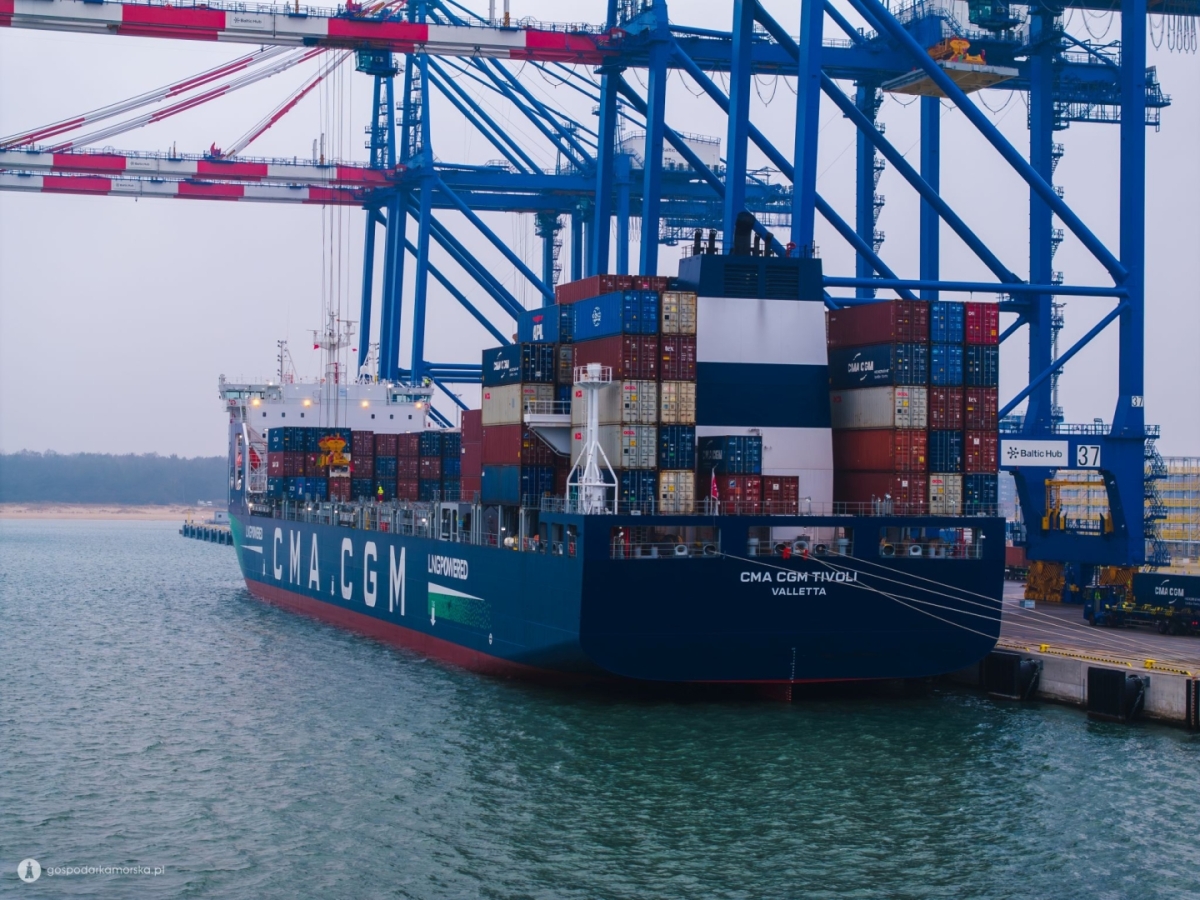
The first test handling of a vessel has been successfully completed at the newly constructed T3 quay at the Baltic Hub terminal in Gdańsk. The addition of T3 is expected to significantly boost future cargo throughput, helping the Port of Gdańsk maintain its status as a leading transshipment hub in the Baltic Sea.
This inaugural test operation marked a milestone for the T3 quay, under construction since October 2022. It also served as a practical trial for the terminal’s staff before they begin routine container handling for vessels arriving in Gdańsk from around the globe.
The honor of being the first vessel to dock and be serviced at the new quay went to the CMA CGM Tivoli (IMO: 9961312), a newly built container ship from 2024. Part of the fleet of long-standing Baltic Hub partner CMA CGM, the ship is 205 meters long and 30 meters wide, with a gross tonnage of 32,245 GT. Notably, it is powered by environmentally friendly LNG propulsion, enabling lower CO₂ emissions during voyages.
Baltic Hub emphasized that first-time test operations always come with challenges, but this one was successfully completed. A total of 1,474 TEU were handled from the CMA CGM Tivoli, allowing the terminal to put four new STS (ship-to-shore) cranes to the test. These cranes, which arrived in Gdańsk in November of last year, became operational in February 2025.
As part of the massive T3 development project, a 36-hectare artificial island has been created, which will serve as a maneuvering and storage yard. In the coming month, three more STS cranes will arrive and be installed at the quay. April will also see the arrival and handling of a large ocean-going vessel from MSC, preceded by a feeder vessel from ONE.
The full commissioning of T3 is scheduled for the end of September 2025. The investment will deliver a safer, more modern, and more efficient working environment. With T3 operational, Baltic Hub’s capacity will increase by an additional 1.5 million TEU, reaching up to 4.5 million TEU annually. In 2024, the terminal handled 2,242,401 TEU, marking a year-on-year increase of 191,588 TEU.


